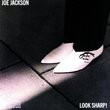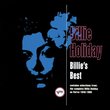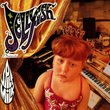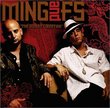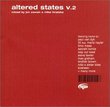| All Artists: Gaudi, Nusrat Fateh Ali Khan Title: Dub Qawwali (Dig) Members Wishing: 1 Total Copies: 0 Label: Six Degrees Original Release Date: 1/1/2007 Re-Release Date: 7/31/2007 Genres: Dance & Electronic, International Music, Jazz, Pop Styles: Electronica, Techno Number of Discs: 1 SwapaCD Credits: 1 UPC: 657036113725 |
Search - Gaudi, Nusrat Fateh Ali Khan :: Dub Qawwali (Dig)
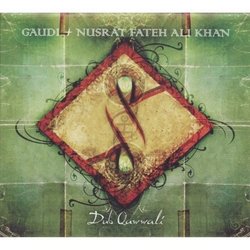 | Gaudi, Nusrat Fateh Ali Khan Dub Qawwali (Dig) Genres: Dance & Electronic, International Music, Jazz, Pop
There is always something a bit macabre in creating a collaboration with a musician who has been dead for a decade. This kind of thing is nothing new, of course. The dead are sampled daily--from Nina Simone to Elvis Pres... more » |
Larger Image |
CD DetailsSynopsis
Amazon.com There is always something a bit macabre in creating a collaboration with a musician who has been dead for a decade. This kind of thing is nothing new, of course. The dead are sampled daily--from Nina Simone to Elvis Presley and, most recently, Billie Holiday. But this kind of reconstructive homage reeks of easy opportunism. Nusrat Fateh Ali Khan was the Ravi Shankar, Jimi Hendrix, and John Coltrane of Qawwali singing, the sacred and ancient vocal style popularized in Pakistan and brought to the world by Nusrat in the 1990s. Nusrat himself wasn't averse to cross-cultural collaboration, having cut three albums with producer Michael Brook--two of them expansive, impressionistic world-fusion works. But Nusrat was sensitive to how his music was employed, even chastising Brook on their first album, Mustt Musstt, when Brook resequenced the singer's vocal tracks for musical, but not necessarily literal, effect. They worked out their differences on the masterful Night Song. But Nusrat had no input on these tracks, which he reportedly cut between 1968 and 1974, very early in his career. Dub-electronica artist Gaudi takes the Pakistani's vocals and adds his own reggae and dub backing tracks to them. While Nusrat could send you into a trance state with his upwardly spiraling, almost heavy-metal grooves, Gaudi takes a lighter approach, turning the Qawwali hymns into reggae toasting that subverts much of the original intent. From the lyrical pop drift of "Kahin Mot Se Bhi Na Jao" to the vaguely hypnotic "Dil Da Rog Muka Ja Mahi," with its sampled sequence from Kraftwerk's "The Model," Gaudi chooses the attractive surface over the deeper journey that Nusrat Fateh Ali Khan conjured almost every time he sang. --John Diliberto Similarly Requested CDs
|
CD ReviewsWorks well (if you like reggae) Pink Noodle | Duncanville, TX USA | 08/03/2007 (4 out of 5 stars) "The Amazon official reviewer makes some good points. Also note that the instrumentation and rhythmic feel is nothing like qawwali music - it's mostly reggae-type grooves. But if I think about it in terms of a musical hybrid - not expecting qawwali music, and not expecting 'heights of ecstasy' from the religious lyrics... then I like it. And I don't even listen to much reggae! :-) The vocals are quite nice, and I'm impressed with how 'natural' they sound combined with reggae/electronica musics added decades later. If you want actual qawwali - or even the kind of 'worldbeat qawwali' Nusrat did with Brook - don't get this. But if you're even slightly a reggae fan, these are pretty interesting vocal lines on top. Here's a lengthy review from the site calabashmusic (which also has soundclips and downloads) which gives a different spin than the Amazon reviewer: Nusrat Fateh Ali Khan was and is still very much considered to be one of the greatest Qawwals (singer of qawwali music) in the world; not only recognised as a legend in his native Pakistan he also took his musical messages of peace, love and spirituality to the international stage, earning him the title of Pakistan's premier ambassador of Qawwali music. In the west, audiences were introduced to the power of Nusrat's music through collaborations with Eddie Vedder and Tim Robbins on the soundtrack for `Dead Man Walking' and with Peter Gabriel in `Passion: Music for The Last Temptation of Christ'. Dubbed by many as the `Elvis of the East' and the `Bob Marley of Pakistan' these titles are not without foundation; he has sold more albums than Elvis and reached as many hearts and souls and crossed as many cultural and spiritual boarders as Bob Marley with his unique mix of poetic eastern spiritual and western musical themes. This inspiring tribute to a legend of our time has been created by highly regarded London based producer and composer Gaudi, himself no stranger to crossing boundaries and forging links using the music of the world. Included in his impressive discography is the soundtrack for Hanif Kureishi's hit stage-play "My Beautiful Laundrette" - a soundtrack richly woven with the cultural traditions of Pakistani music. His Interchill's bestselling 2004 release "Bass, Sweat & Tears" (Interchill Records), skilfully unites many ancient and culturally diverse musical styles with `gaudi-style' beats and bass in an inspiring musical exploration of our planet; which, alongside his remixes of other legends such as Bob Marley all add up to confirm Gaudi's skill as a producer and his credentials as musical diplomat Using recently discovered and rare vocal parts, recorded during sessions in Pakistan in the late 60's & early 70's, Gaudi has sensitively created a set of completely new tracks, crafted around Nusrat's uniquely beautiful melodies and universal themes of spirituality, peace and love. The overall essence of the album blends elements of Reggae - the international music of peace and love - with dub, electronica and traditional instrumentation and modern production techniques creating a sound that is in turns, up-lifting, haunting, moving and warming. The task of creating a work that will carry the voice of Nusrat Fateh Ali Khan to new audiences around the world as well as his huge existing fan base, has been achieved without a doubt in this timeless collection of songs. " A beautiful, respectfully realised album. Joshua Tannoy Bradley | 08/16/2007 (5 out of 5 stars) "It's not often that an Amazon Editorial Reviewer gets their facts so wrong however I think that Mr Diliberto's slightly puritanical rant about what I personally believe to be one of the great world music albums of 2007 is not only misleading but inaccurate and I wanted to add some facts to the fiction. I fully respect that `fresh representations of beautiful classics' may not be John Diliberto's idea of a worthy project and a personal opinion is always interesting to read... however to make this album sound like an amateurish and opportunistic bootleg, as he has, is just wrong... particularly when it is a work that has been created with such obvious respect, passion and skill as Dub Qawwali has. Whether you're a reggae fan or not, I think that it is a beautiful and courageously delivered work. I have read the official press information that came with the release of this album and have subsequently listened to a couple of interviews with it's creator Gaudi (on respected Asian & International network radio stations) and although Nusrat had no `real-time input' on these tracks... his former record label "Rehmat Gramophone" and Nusrat's widow Nahid did (and with all due respect to the Amazon Reviewer I feel they're better placed to represent the great Master than him). This album was commissioned by the owners of the original studio material and each track approved by both them and Nahid Nusrat Ali Khan before release. Not one `sample of Nusrat' was used in its making, as the Amazon reviewer would have you believe - it was created using material direct from the original multitrack studio recordings - and the Kraftwerk sequence used on the inspirationally delivered "Dil Da Rog Muka Ja Mahi" (from their track `The Model') wasn't sampled either... it was played on an authentic Moog analogue synthesiser by Gaudi with permission from Kraftwerk (who co-wrote the track; all info written on the cd cover!). I'm not one to slander another's personal opinion (and hope my words wont be misconstrued as such) as I believe that it is our differences that make us culturally rich; I do feel strongly however, as someone who also writes about music for a living, that whatever your views, it is only right and respectful to an artist and their work that you do not mislead people from the facts in order to gain credibility for your personal taste. These are some of the facts of the creation of this album... and for my part I think it is a truly original and beautifully realised project... it's well worth checking out the audio samples if you have even a vague interest in world music, reggae, dub or fresh ideas...and if you do decide to buy it... I can assure you that the more you listen to it, the more you'll love it! J.T.B " Interesting rather than brilliant Arvind Rajan | livingston, nj United States | 01/18/2008 (3 out of 5 stars) "Gaudi's reggae-inspired interpretation of Nusrat Fateh Ali Khan's music is a homage to the artist, as well as a bold foray in infusing qawwali music with a reggae sensibility. On the one hand, one has to admire Gaudi's audacity and respect his dedication - he said in an NPR "Fresh Air" interview that it took him about two years to get it right, and that he steeped himself in Nusrat's music to gain a deep knowledge of it.
On the other hand, the actual results, while well-put-together and presenting some interesting juxtapositions of Punjabi music and Reggae, fail ultimately to excite and inspire. The best aspect of the album is the sense of continuity within each song. Most of the time, you think that the songs were actually recorded for this album, which is quite an achievement, considering that Gaudi's and Nusrat's contributions are in reality separated by almost three decades. Neither is it far-fetched that Nusrat, were it not for his untimely death in the late 1990s, might easily have contemplated lending his name and his time to such an collaboration. His earlier collaborations with Western artists, notably Michael Brooks, are well-known and loved. Another strength is that Gaudi has incorporated a number of different types of song-segments, which draw on different parts of the traditional Qawwali corpus - the alaap, the main verse, the chorus, and the exposition of the raga itself. This gives the album some variety. There are two main reasons why I would not give this album more than 3 stars. The first is the fragmentary nature of the songs - the songs each give us glimpses of a raga or a particular arrangement but the repetitiveness within each song is ultimately frustrating as Gaudi fails to draw him out on each musical theme and exploring its full potentialities before going on to the next one. Gaudi's own contributions seem competent but not necessarily creatively brilliant - he was clearly constrained by his need to remain faithful to the master. The second problem is more profound - unlike Nusrat's own East-West efforts, this one lacks, at least for me, the spark that takes it to the next level - that transcends both genres that are being combined to produce something unique. One gets the impression of a happy mixture rather than a true solution, a skillful graft rather than the creation of an entirely new animal. The young English-Punjabi artists like Nitin Sawhney and Bally Sagoo who have created more modern blends of Punjabi and Bollywood music with Hip-hop actually succeed better when it comes to organic creation - while their artistry is hardly as sublime as Nusrat's, their work overall is more organic. For die-hard Nusrat fans, this CD is of course a must-have. Despite its flaws, it is pleasant to listen to and makes for good living-room conversation." |

 Track Listings (10) - Disc #1
Track Listings (10) - Disc #1


